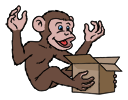diff options
Diffstat (limited to 'mozilla-extension-update.sh')
| -rwxr-xr-x | mozilla-extension-update.sh | 144 |
1 files changed, 144 insertions, 0 deletions
diff --git a/mozilla-extension-update.sh b/mozilla-extension-update.sh new file mode 100755 index 0000000..1bf15a6 --- /dev/null +++ b/mozilla-extension-update.sh @@ -0,0 +1,144 @@ +#!/bin/sh +# +# This script is used to add and remove our extension from one of the Mozilla +# products directory, and is run from 'triggers' when the product is installed or +# upgraded, as well as when our package is installed. It is needed because +# Mozilla products are installed into versioned directories in /usr/lib[64]/<product> +# so we have to make a new symlink into the right directory when the +# application is installed or upgraded. But we would rather not leave +# our old symlinks behind, since that will cause the application +# directories not to be removed. (flash-player leaves its old symlinks behind, +# but that's no excuse for us to do the same...) +# +# Because I don't know any way of finding out what the new version +# is on installation or old version on uninstallation, we have +# to do things in a somewhat non-intuitive way +# +# The order on upgrade of the mozilla application is: +# +# 1. new package installed +# 2. triggerin for new package - we add all symlinks +# 3. triggerun for old package - we remove all symlinks +# 4. old package uninstalled +# 5. triggerpostun for old package - we add all symlinks +# +# Triggers are also run on self-upgrade, in that case we do: +# +# 1. new package installed +# 2. triggerin for new package - we add all symlinks +# 3. triggerun for old package - we remove all symlinks +# 4. old package uninstalled +# 5. postun for old package - we add all symlinks +# 6. triggerpostun for old package - NOT RUN (contrary to RPM docs) +# +# +# Script arguments: +# --appname: the mozilla application that this extension should register into. +# Usually firefox or thunderbird. +# --extname: the name of the extension. It can be determined by looking at +# the install.rdf file, in the extension directory. This file +# contains several <em:id> tags. The extname parameter is the +# content of the em:id tag which is not contained in the +# em:targetApplication tag +# --extpath: the path where the extension will be installed +# --action: either "install" or "remove" +# --basedir: the dirname of the directory where the target application is +# installed. Usually /usr/lib or /usr/lib64>, it defaults to +# /usr/lib +# +# +# Here's an example implementation in rpm scriptlets: +# +# %define tbupdate %{_libdir}/lightning/mozilla-extension-update.sh --appname thunderbird --extname {e2fda1a4-762b-4020-b5ad-a41df1933103} --basedir %{_libdir} --extpath %{_libdir}/lightning --action +# +# %post +# %{tbupdate} install || true +# +# %preun +# # On removal (but not upgrade), remove the extention +# if [ $1 = 0 ] ; then +# %{tbupdate} remove || true +# fi +# +# %postun +# # This is needed not to reverse the effect of our preun, which +# # is guarded against upgrade, but because of our triggerun, +# # which is run on self-upgrade, though triggerpostun isn't +# if [ $1 != 0 ] ; then +# %{tbupdate} install || true +# fi +# +# %triggerin -- thunderbird +# %{tbupdate} install || true +# +# %triggerun -- thunderbird +# %{tbupdate} remove || true +# +# %triggerpostun -- thunderbird +# # Guard against being run post-self-uninstall, even though that +# # doesn't happen currently (see comment above) +# if [ "$1" != 0 ] ; then +# %{tbupdate} install || true +# fi + + +die() { + echo >&2 "$@" + exit 0 +} + +usage() { + die "Usage: $0 --appname <application-name> --extname <extension-name> --extpath <extension-path> --action <install|remove> [--basedir </usr/lib|/usr/lib64>]" +} + +appname= +extname= +extpath= +action= +basedir=/usr/lib +while [ "$#" -gt "0" ]; do + case "$1" in + --appname) + shift; appname="$1" ;; + --extname) + shift; extname="$1" ;; + --extpath) + shift; extpath="$1" ;; + --action) + shift; action="$1" ;; + --basedir) + shift; basedir="$1" ;; + *) usage ;; + esac + shift +done + + +if [ "$action" = "install" ] ; then + # Add symlinks to any mozilla directory that looks like it is part of a + # currently installed package + for d in $basedir/${appname}*; do + if [ "$d" = "$basedir/${appname}*" ] ; then + continue + fi + link=$d/extensions/$extname + if [ -e $extpath -a -e $d/$appname-bin -a -d $d/extensions -a ! -L $link ] ; then + ln -s $extpath $link + fi + done +elif [ "$action" = "remove" ] ; then + # Remove any symlinks we've created into any mozilla directory + for d in $basedir/${appname}*; do + if [ "$d" = "$basedir/${appname}*" ] ; then + continue + fi + link=$d/extensions/$extname + if [ -L $link ] ; then + rm $link + fi + done +else + usage +fi + +exit 0 |
